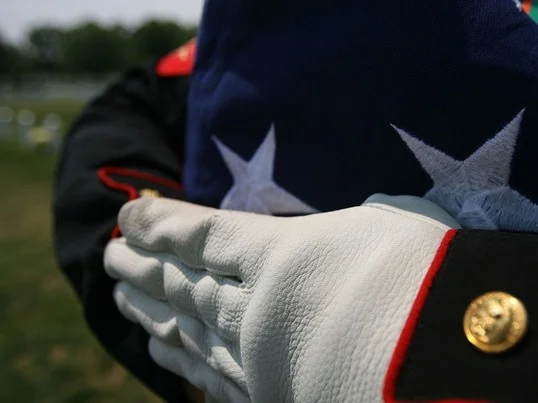Do You Know Your VA Depression Rating in Maine?
Veteran with depression? Wondering about your VA depression rating? Understanding your rating options may help you get essential perks and support.
Veterans returning to civilian life can be difficult. Chronic sadness can accompany you. These sensations can worsen. Depression is more severe and lasts longer. Did you know there’s a support system? Let’s explore the VA Depression Rating and how it can affect you.
VA Disability for Depression refers to VA benefits. Military veterans with depression benefit from it. Unfortunately, soldiers often experience depression, which can affect their daily lives. VA Disability benefits may be unknown to many veterans. Understanding your rating options can help you get help.
Quick Summary:
- What is Depression?
-
-
- Depression is a serious mental health condition characterized by persistent sadness, loss of interest or pleasure, changes in appetite or weight, sleep disturbances, fatigue, feelings of worthlessness or guilt, difficulty concentrating or making decisions, and thoughts of death or suicide.
-
- How Do Veterans Establish VA Service Connection for Depression?
-
-
- Veterans seeking VA disability benefits for depression must demonstrate a connection between their condition and military service.
- Requirements include a current diagnosis, evidence of an in-service event or aggravation, and a medical nexus establishing the link between depression and service.
-
- What Are The VA Ratings For Depression?
-
- VA assigns disability ratings for depression ranging from 0% to 100%, based on the severity of symptoms and their impact on social and work life.
- How Much Disability Can You Get For Depression?
- Ratings determine the amount of monthly disability compensation, with rates varying annually and higher ratings resulting in higher benefits.
What is Depression?
Depression is a serious mental health condition. It causes sadness, disinterest in things you used to enjoy, social withdrawal, and a lack of energy. It can lead individuals to feel hopeless about the future and even think about suicide.
It can affect how you think, feel, and handle daily activities. It can cause many emotional and physical problems.
Key features of depression include:
- Persistent sadness
- Loss of interest or pleasure
- Changes in appetite or weight: Significant weight loss or gain due to changes in appetite.
- Sleep disturbances: Insomnia (difficulty falling or staying asleep) or hypersomnia (excessive sleepiness).
- Fatigue or loss of energy:
- Feelings of worthlessness or guilt:
- Difficulty concentrating or making decisions: Struggling to focus, remember things, or make decisions.
- Thoughts of death or making suicide attempts.
How Do Veterans Establish VA Service Connection for Depression?
Veterans facing depression can get VA disability benefits. They can do this by showing that their condition is related to their service. Here’s a breakdown of the key requirements and steps involved:
Requirements for Service Connection
The VA generally needs evidence to satisfy three criteria:
- Current Diagnosis for Depression: You must have a current diagnosis of depression from a qualified medical professional (therapist, psychiatrist, etc.).
- In-Service Event or Aggravation: You need to show a connection between your depression and your military service. This could be:
- A stressful event that happened during your service that caused your depression.
- Pre-existing depression that worsened due to your military service.
- Medical Nexus: This is a crucial piece of evidence. A medical nexus is a written opinion from a qualified medical professional. This can be a psychiatrist or psychologist. It establishes a link between your current depression and your military service. The nexus should explain how the in-service stressors likely caused or worsened your depression.
3 Types of Service Connection
The VA requires evidence to demonstrate a link between your depression and military service. This can be achieved through:
Direct Service Connection
It means a specific event or series of events during your service directly caused your depression.
Examples are combat trauma, sexual assault, military sexual harassment, and seeing horrific events. These are service-related stressors.
Aggravation of Service-Connected Condition
If you had depression before service but it worsened due to military service, this could qualify. Evidence is crucial to show a clear link between military service and worsening symptoms.
Presumptive Service Connection
Certain conditions, including depression under specific circumstances, are presumed to be service-connected for veterans who served during a specific time like the Vietnam War.
What Are The VA Ratings For Depression?
The VA assigns disability ratings for depression based on a scale. The scale goes from 0% (no disability) to 100% (total disability). They use the General Rating Formula for Mental Health Conditions. The ratings consider the symptom’s severity. They also consider their impact on a veteran’s social and work life. Here’s a breakdown of the VA disability ratings for depression:
- 0%: No disability rating. This applies if you have a formal depression diagnosis. But, the symptoms are very mild. They don’t cause any trouble in social or work areas, and you don’t need ongoing medication.
- 10%: Mild symptoms. You have occasional depressive episodes. They may need short-term medication or therapy. But, they don’t greatly interfere with your work or social life.
- 30%: Moderate symptoms. Depression affects your work and social life to a moderate degree. You may have trouble concentrating. You may also struggle to stay motivated or meet work and social duties. This is reportedly the most common rating for depression ([sources mentioned previously]).
- 50%: More severe symptoms. Depression significantly limits your ability to work and participate in social activities. You may have frequent episodes or require ongoing medication and therapy to manage your symptoms.
- 70%: Very severe symptoms. Depression severely limits your ability to work and maintain social relationships. You may require intensive treatment or hospitalization due to the severity of your symptoms.
- 100%: Total disability. Depression renders you unemployable and unable to function independently in social settings. You may require constant care and assistance due to the debilitating effects of your condition.
The VA depression rating is based on specific criteria in the VA Schedule for Rating Disabilities (VASRD). These criteria can change over time if symptoms and impairment change. So, if you are seeking a VA depression rating, you should get a full evaluation by VA doctors.
How Much Disability Can You Get For Depression?
VA disability benefits depend on your VA depression rating. It also depends on whether you have dependents. The VA uses a compensation rating system ranging from 0% to 100%, with increments of 10%. The higher the disability rating, the higher the monthly benefit.
The VA disability compensation rates vary annually, typically adjusting for cost-of-living increases. For a veteran without dependents, here are the monthly disability compensation rates effective December 1, 2023.
- 10% disability rating: $171.23
- 20% disability rating: $338.49
- 30% disability rating: $524.31
- 40% disability rating: $755.28
- 50% disability rating: $1,075.16
- 60% disability rating: $1,361.88
- 70% disability rating: $1,813.28
- 80% disability rating: $2,106.01
- 90% disability rating: $2,366.91
- 100% disability rating: $3,877.22
Rates can change yearly, so checking the newest information from the Department of Veterans Affairs is essential to getting accurate benefit amounts. Additionally, veterans with dependents may receive higher compensation rates.
How Does VA Rate Depression?
The VA rates depression using a scale from 0% (no disability) to 100% (total disability). The rating is based on symptoms’ severity and impact on a veteran’s daily life. This impact is felt most in social and work functioning. Here’s a breakdown of the key points:
Severity Assessment
The VA goes beyond just a diagnosis. They evaluate the:
- Frequency: How often do symptoms occur?
- Duration: How long have symptoms been present?
- Intensity: How severe are the symptoms?
Impact on Daily Life
The VA assesses how depression affects a veteran’s ability to:
- Maintain employment
- Manage relationships
- Complete daily tasks
However, more severe symptoms, like persistent delusions or hallucinations, can lead to a 100 % rating.
Self-injurious behaviors and suicide attempts also warrant a 100 percent rating.
Remember, you don’t need to endorse all listed symptoms to qualify for a specific rating. If you are seeking disability benefits for depression, you need to provide thorough documentation of your symptoms and their impact on your ability to function. This documentation helps you ensure that you receive an appropriate VA depression rating that reflects the severity of your condition.
Discover Your VA Depression Rating with the Help of Jackson & MacNichol Law Offices
Are you depressed, veteran? Is it related to your military service? If so, consult Francis Jackson, a VA disability attorney. He can explain your VA depression rating and assist with the application. Getting you your benefits.
At Jackson & MacNichol Law Offices, our skilled team, led by Francis Jackson, focuses on guiding individuals like you through the intricacies of VA disability claims, particularly regarding depression. Whether you’re unsure about your rating options or need assistance in appealing a decision, we’re here to help.
We understand that navigating the VA disability process can be overwhelming, especially when dealing with the challenges of depression. Our team is dedicated to providing personalized guidance to ensure you understand your options and receive the benefits you’re entitled to.
Ready to take the next step in understanding your VA depression rating? Contact our team at Jackson & MacNichol Law Offices today for free consultation and assistance tailored to your needs.
Be sure to secure the benefits you deserve. Contact us now and let’s find a brighter future together.



